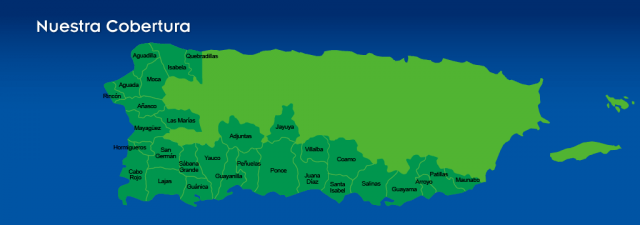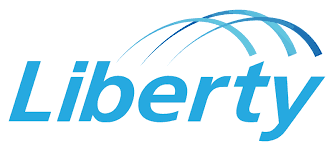 Liberty Cablevision of Puerto Rico has estimated it will take as long as June of this year to fully restore cable and broadband service to Puerto Rico.
Liberty Cablevision of Puerto Rico has estimated it will take as long as June of this year to fully restore cable and broadband service to Puerto Rico.
It has been over 100 days since Hurricane Maria devastated Puerto Rico and the U.S. Virgin Islands. At least 45% of Puerto Rico remains without any electricity, and the U.S. Army Corps of Engineers estimates it will take until May to fully restore power — eight months after the hurricane hit.
The island’s well-publicized power scandal with a politically-connected contractor also involves a decrepit utility, likely corruption in contract awards, incompetent management, and political interference from conservative groups who want to privatize the island’s utility and sell off its assets to corporate interests and entrepreneurs competing to turn the island into an experimental laboratory for renewable energy sources. All contribute to a slowdown in power recovery because no plan has adequate backing and sufficient resources to quickly bring power back online. Instead, mutual aid assistance from U.S. utilities is gradually rebuilding and strengthening the island’s existing power grid.
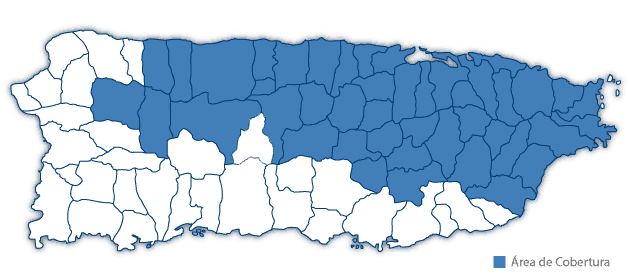
Liberty Cable’s original service area.
Liberty Cablevision claims many of its outages are power-related. When power is restored, their service will return as well. But many of their former customers will not. More than 140,000 Puerto Ricans have left since the storm hit Sept. 20 and some experts estimate more than 300,000 more could leave in the next two years. That’s on top of a similar number that have already left over the last decade as a result of the perpetual economic crisis on the U.S. island territory of 3.4 million.
Liberty is rebuilding significant parts of their network, spending millions to replace damaged coaxial cable with fiber optics, especially in areas closest to the eye of the hurricane where damage was greatest.
Liberty Global, controlled in part by cable magnate John Malone, this week completed spinning off Liberty Cablevision of Puerto Rico to Liberty Latin America, a new independent, publicly traded company. Included in the spinoff are Cable & Wireless Communications, a familiar telecom company serving Caribbean islands, parts of Latin America and the African island nation of the Seychelles, and VTR – Chile’s largest cable company.
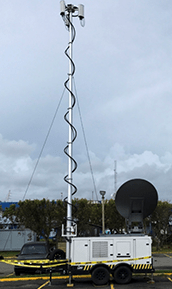
A portable cell site
Cellular/Cable/Telephone
As of Dec. 29, 11.0% of Puerto Rico’s cell sites remain out of service. One county, Vieques, has greater than 50% of its cell sites out of service.
Satellite Cells on Light Trucks (COLTs) have been deployed in Aguadilla, Arecibo, Cayey, Coamo Sur, Fajardo, Guayama, Manati, Mayaguez Mesa, San German, Vega Baja, and Yauco and Terrestrial Cells on Wheels (COWs)/COLTs in Humacao, Quebradillas, Rio Grande, and Utuado.
U.S. Virgin Islands: Overall, 20.5% of cell sites are out of service. 50% of cell sites in St. John are out of service.
The FCC has received reports that large percentages of consumers are without either cable services or wireline service. While the companies have been actively restoring service, the majority of their customers do not have service because commercial power is not yet available in their respective areas. In Puerto Rico, there are no major telecom switches still affected.
Broadcast Stations
When broadcast stations are listed as “suspected to be out of service,” the statement is based on field scanning of relevant bands. Stations listed may be operating on reduced power or on a reduced schedule.
Television
Puerto Rico
- 5 TV stations are confirmed operational (WKAQ, WIPR, WNJX, WTIN, WORO)
- 2 TV stations are suspected to be out of service (WIPM, WELU)
- 70 TV stations have been issued Special Temporary Authority to be offline
- 30 TV stations have unconfirmed status
U.S. Virgin Islands
- 14 TV stations have been issued Special Temporary Authority to be offline
- 2 TV stations have unconfirmed status
AM Radio
Puerto Rico
- 42 AM radio stations are confirmed operational (WA2X, WABA, WALO, WAPA, WBMJ, WCMN, WCGB, WCPR, WDEP, WENA, WEXS, WGDL, WI2X, WI2X, WI3X, WIAC, WIPR, WISO, WKAQ, WKFE, WKJB, WKUM, WLEO, WLEY, WMDD, WMNT, WMSW, WOIZ, WOQI, WORA, WPAB, WPPC, WPRA, WPRP, WSKN, WSOL, WTIL, WUNO, WUPR, WVJP, WXEW, WYEL)
- 8 AM radio stations are suspected to be out of service (W227, WJDZ, WNVE, WVQR, WYAS, WZCA, WZMT, WZOL)
- 21 AM radio stations are confirmed out of service by the Puerto Rican Broadcast Association (WBQN, WCMA, WDNO, WEGA, WFAB, WGIT, WHOY, WIBS, WIDA, WISA, WIVV, WJIT, WKVM, WLRP, WNEL, WNIK, WOLA, WOSO, WQBS, WRSJ, WUKQ)
- 1 AM radio station has unconfirmed status
- 2 AM radio stations have been issued Special Temporary Authority to be offline
U.S. Virgin Islands
- 2 AM radio stations are confirmed operational (WSTA, WUVI)
- 2 AM radio stations are suspected to be out of service (WDHP, WSTX)
- 1 AM radio station has unconfirmed status
FM Radio
Puerto Rico
- 55 FM radio stations are confirmed operational (WAEL-FM, WCAD, WCMN-FM, WCMNFM3, WCMN-FM6, WEGM, WERR, WERR-FM1, WERR-FM2, WERR-FM3, WFDT, WFID, WIDI, WIRI, WIVA-FM, WKAQ-FM, WKAQ-FM1, WKAQ-FM2, WLUZ, WMAA-LP, WMEG, WMIO, WNNV, WNRT, WNRT-FM1, WNRT-FM2, WNVM, WODA, WORO, WOYE, WPRM-FM, WPUC-FM, WPUC-FM1, WQML, WRIO, WRRH, WRTU, WRXD, WTOK-FM, WTOKFM2, WTPM, WTPM-FM1, WVDJ-LP, WVIE, WVIS, WVJP-FM, WVJP-FM2, WXYX, WXYXFM1, WXYX-FM2, WZAR, WZIN, WZNT, WZNT-FM1, WZOL)
- 8 FM radio stations are suspected to be out of service (W227CV, WJDZ, WNVE, WVQR, WYAS, WZCA, WZMT, WZOL-FM3)
- 17 FM radio stations are confirmed out of service by the Puerto Rican Broadcast Association (WCAD-FM1, WCAD-FM2, WCRP, WELX, WIDA-FM, WIOA, WIOA-FM1, WIOC, WNIK-FM, WQBS-FM, WQBS-FM1, WUKQ-FM, WUKQ-FM1, WXHD, WXLX, WYQE, WZET)
- 3 FM stations have been issued Special Temporary Authority to be offline
- 28 FM radio stations have unconfirmed status
U.S. Virgin Islands
- 2 FM radio stations are confirmed operational (WVIE, WZIN)
- 1 FM radio station is suspected to be out of service (WVIZ)
- 1 FM radio station has been issued Special Temporary Authority to be offline
- 19 FM radio stations have unconfirmed status
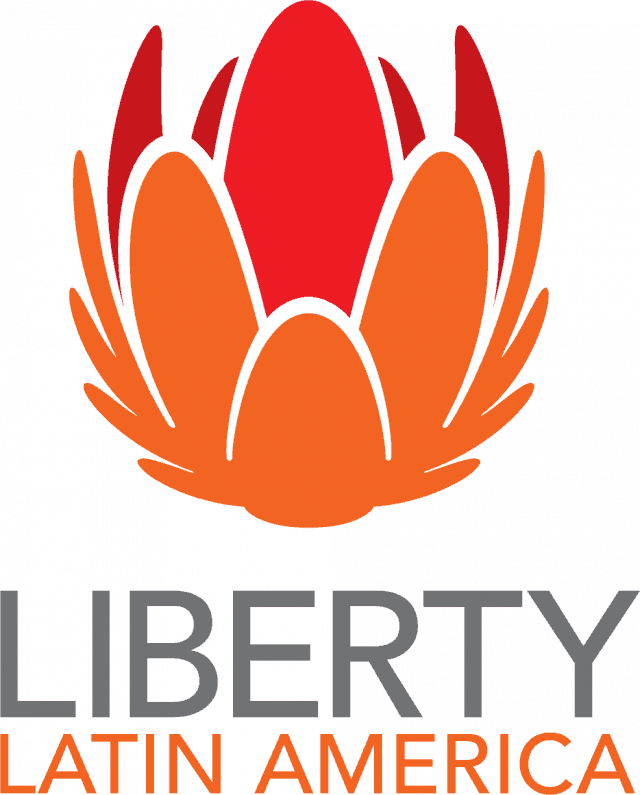 AT&T will sell its operations in Puerto Rico and the U.S. Virgin Islands to John Malone’s Liberty Latin America, Ltd., setting up a virtual market monopoly for Liberty, which already owns cable operator Liberty Cablevision of Puerto Rico.
AT&T will sell its operations in Puerto Rico and the U.S. Virgin Islands to John Malone’s Liberty Latin America, Ltd., setting up a virtual market monopoly for Liberty, which already owns cable operator Liberty Cablevision of Puerto Rico.

 Subscribe
Subscribe Liberty Cablevision of Puerto Rico has estimated it will take as long as June of this year to fully restore cable and broadband service to Puerto Rico.
Liberty Cablevision of Puerto Rico has estimated it will take as long as June of this year to fully restore cable and broadband service to Puerto Rico.

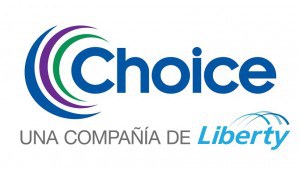 John Malone’s Liberty Global has bought out Puerto Rico’s second biggest cable television operator — Choice Cable TV — and will convert its customers to Liberty Cablevision of Puerto Rico.
John Malone’s Liberty Global has bought out Puerto Rico’s second biggest cable television operator — Choice Cable TV — and will convert its customers to Liberty Cablevision of Puerto Rico.